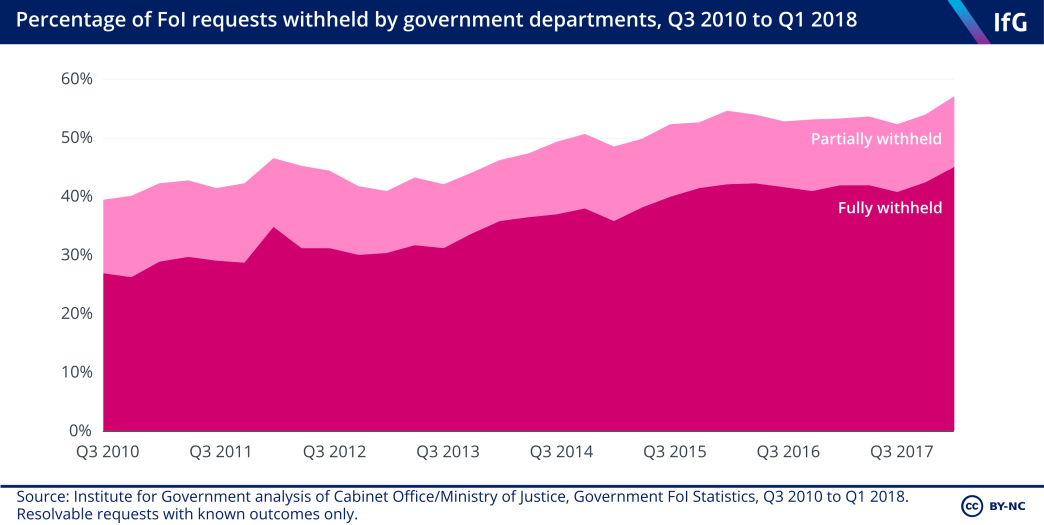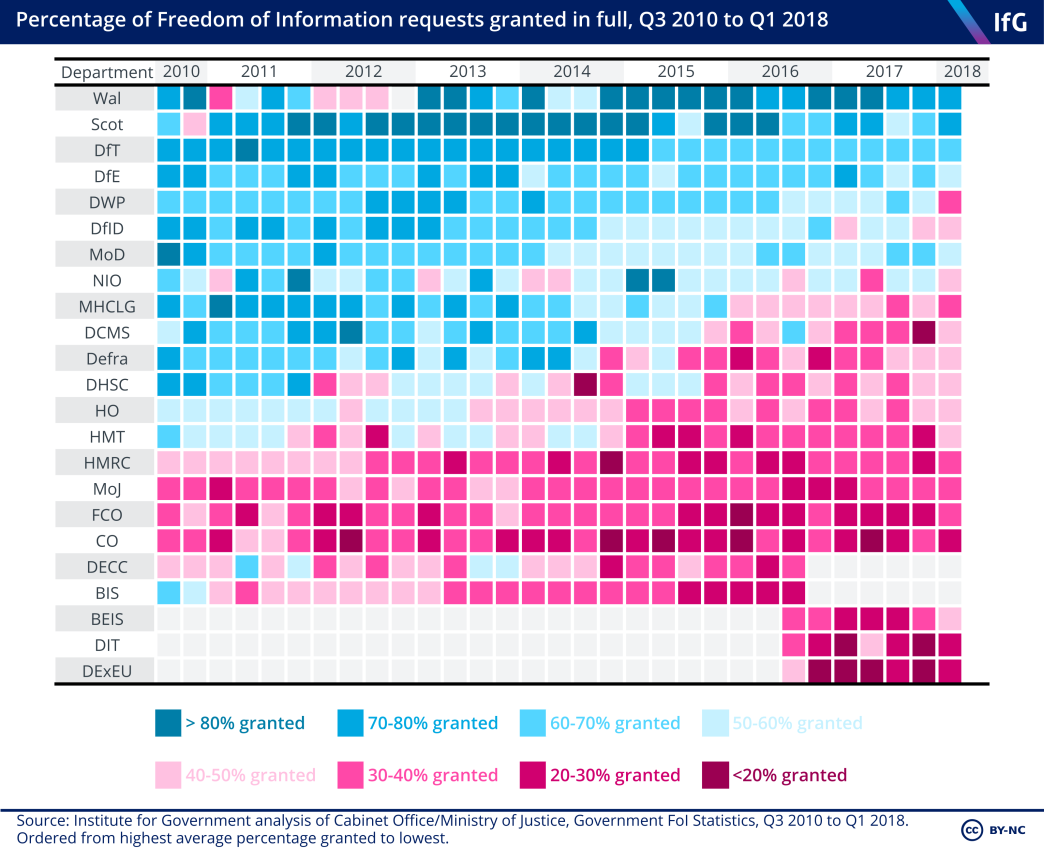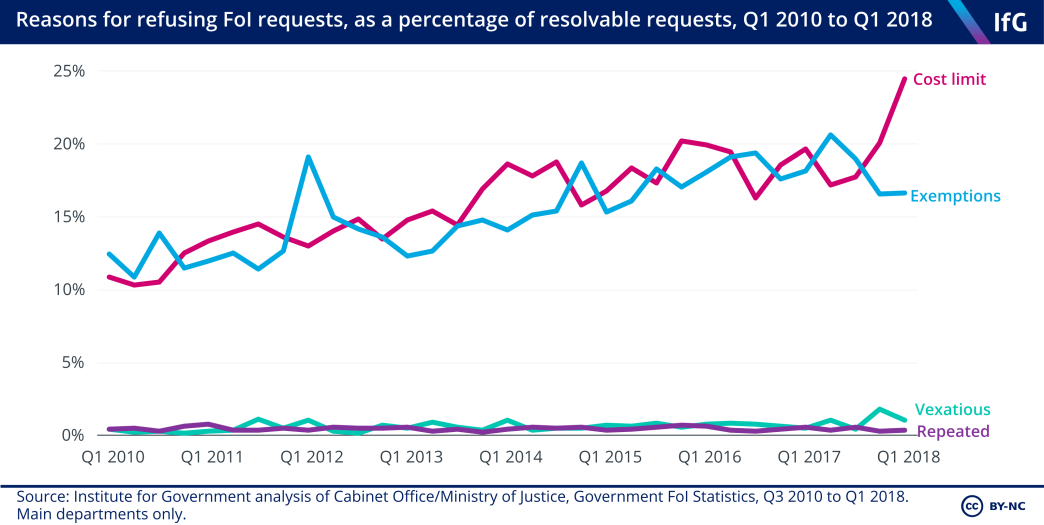The percentage of Freedom of Information (FoI) requests being refused by government has reached a record level.
We now need to see a marked improvement in the Government’s FoI responses, or a convincing justification of why things have changed.
The percentage of Freedom of Information (FoI) requests being refused by government has reached a record level. Aron Cheung says Parliament must demand explanations.
In the first three months of 2018, 45% of FOI requests received by government departments were refused in full. This is the highest percentage of refused requests since at least 2010, when only 26% of requests were rejected.

This is clearly bad for government transparency. But more worrying is the fact that the latest quarter is not a blip. January to March 2018 is the 11th consecutive quarter where less than half of requests were granted in full, marking a clear and sustained deterioration in the Government’s performance on FoI (as we’ve previously highlighted on several occasions).
Freedom of Information is a vital tool for the public to be able to hold government to account. The significant and sustained decline in information being granted is highly concerning, and we need reassurance that departments are not simply applying exemptions and cost limits more liberally in response to requests.
This is where parliamentary select committees and the Information Commissioner’s Office can help. In their capacity as institutions which hold government to account, they should turn their attention to the departments where performance on FoI is deteriorating and demand answers on why so many requests are being denied.
Refusing FoI requests is the new normal in many departments
In the latest quarter, 16 out of 21 government departments refused (in full or in part) more than half of the FoI requests they received, compared to only five out of 20 in mid-2010. While some departments – such as the Cabinet Office (CO), Foreign and Commonwealth Office (FCO) and Ministry of Justice (MoJ) – always refuse a large percentage of requests they receive, others have only started doing so in recent years.

Among these are the Ministry of Housing, Communities and Local Government (MHCLG), Department for Digital, Culture, Media and Sport (DCMS), Department for Environment, Food and Rural Affairs (Defra) and the Department for Health and Social Care (DHSC), which have gone from granting more than 65% of requests in full in 2011, to fewer than 45% in the past 12 months.
The Department for Exiting the EU (DExEU), Department for International Trade (DIT), and Department for Business, Energy and Industrial Strategy (BEIS) have granted less than 30% of the requests they have received in full.
Government must be held accountable for its performance on FoI
There are two main reasons why FoI requests are refused – exemptions and cost limits – and the use of both reasons has increased significantly since 2010. Last year, exemptions (which cover areas such as personal information and national security) were applied to 18% of requests, up from 12% in 2010. A further 20% of requests in the last year were refused because it would have cost more than £600 to comply with the request, up from 11% in 2010.

While cost limits and exemptions are sometimes legitimate reasons for withholding information, it is important that they are balanced against the public interest of making information available. The increase in their use therefore requires explanation, which so far neither the Government nor individual departments, have offered. This means that – based on the evidence available to the public – there is no clear justification for the increased percentage of denied FoI requests.
We now need to see a marked improvement in the Government’s FoI responses, or a convincing justification of why things have changed.
Abbreviations for government departments.
For more on Freedom of Information, read our Whitehall explainer.
- Supporting document
- 5890 IFG - Whitehall Monitor 2018 web.pdf (PDF, 5.4 MB)
- Topic
- Civil service
- Keywords
- Government transparency
- Publisher
- Institute for Government